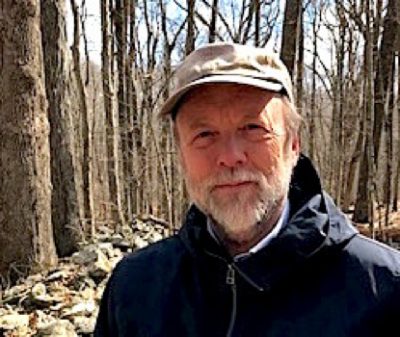
By Robert Thorson, Ph.D., Department Head
and Faculty Coordinator, Earth Science
We know that high school and college students are manifestly anxious about the current climate crisis. But how many also know that Earth isn’t fragile? That climate comes from underground? That ecology is only one part of earthly operations? That radioactive decay keeps our planet habitable? That petroleum is no less natural than water? That oxygen was originally an exhaust gas pollutant? That humanity’s most expensive mistakes involve ignoring the deep time of planetary history?

NASA Image of Earth from the International Space Station. Reid Weisman, Sept. 4, 2014.
It’s an ongoing and societally expensive tragedy that few U.S. citizens know how the Earth works as the whole pie, rather than pieces carved up into arbitrary disciplines. Typically, they were taught only nuggets of old-school geology in grades 8-10, rather than the mother lode of new school geoscience that remains undiscovered for most. I call this new school “whole earth environmentalism”, the idea that understanding how the planet works as a beautifully coherent integrated system is a prerequisite to best-practice management of the specific environmental problems that capture media attention.
UConn ECE is now offering an opportunity for students to learn about how it all works with a course that educates and also puts them on a pathway to important careers that will make a difference.
Meghan Kinkaid, UConn ECE Instructor from CREC’s Academy of Aerospace and Engineering, is a pioneer. This past year, she was the first instructor in Connecticut to offer UConn’s popular introductory geoscience course Earth’s Dynamic Planet (GSCI 1051). Her students now know that they are “impacted by geosciences daily and that this course gives us an opportunity to make them aware, take interest, and possibly plan a career around it.”
They’ve also learned that good jobs, high salaries, and rewarding careers are increasingly available, given the near-future shortfall of 175,000 geoscientists estimated by the American Geosciences Institute. Beginning with this UConn course offered through UConn ECE, the vast majority of UConn’s geoscience majors following one of three tracks (Earth, Environmental, Atmosphere) go on to successful scientific careers: mitigating natural hazards, improving risk assessments, restoring landscapes, accessing clean water, obtaining mineral resources, developing geothermal energy resources, science communication, and education.
The other high school teachers in Meghan’s pioneering cohort of UConn ECE-certified instructors—Lewis from the Hartford Magnet Trinity College Academy and both Christopher Tait and Harold Condosta from Ridgefield High School—were ready for takeoff last fall, but the chaos of the Covid-19 pandemic forced their administrations to delay. Five high schools, including New London High School and Plainfield High School, have certified instructors. Next year, four schools are scheduled to offer GSCI 1051. With school returning to in-person for the fall, Meghan McNichol (New London High School) quipped, “we won’t have to work twice as hard to accomplish half as much.”
Though Meghan Kinkaid is our pioneer, Kim Glazier, a science teacher from Plainfield, is our visionary. “Going forward,” she wrote, she “would like to see all of our AP classes replaced with ECE options.” AP or Advance Placement courses are those which high school students master content to “test out” of a college course during a grueling three-hour exam, provided the college accepts them, and they get a high score. UConn courses taught through UConn Early College Experience are those where the students experience the actual college course being taught in the comfort of their own school by a familiar teacher being supervised by a caring university or college faculty member. Kim’s vision aligns with our growing awareness that sit-down standardized testing is less accessible to under-represented groups, and less accurately reflects the diversity of approaches needed for STEM science careers. When reviewing the GSCI 1051 course description, Kim realized that UConn’s Earth’s Dynamic Planet “would meet the requirements of our required Integrated Science class and thought it would be awesome to offer a course that can lead to college credits for something the students have to take anyway.”
During our inaugural UConn ECE workshop of May 26, 2021, six of us—Meghan, Meghan, Jared, Harold, and me (with Kim included later)—bonded as a team dedicated to increasing the quality of geoscience education in Connecticut high schools. We invite you to join us by reviewing the GSCI 1051 course that unites us and contacting any of us for more information. As UConn’s ECE Coordinator for Geosciences, I’m a good first contact. I look forward to hearing from you.

Unsourced.